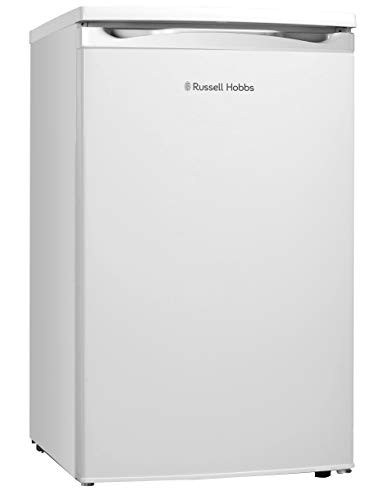From Around The Web: 20 Fabulous Infographics About Commercial Coolers
페이지 정보

본문
The Role and Evolution of Commercial Coolers in the Modern Marketplace
In the bustling landscape of modern commerce, the role of commercial coolers can not be overemphasized. These essential pieces of equipment are the backbone of numerous industries, from grocery stores and corner store to restaurants and healthcare facilities. This post dives into the significance of commercial coolers, their types, developments, and the effect they have on company operations.

Intro to Commercial Coolers
Commercial coolers, also known as commercial refrigerators, are developed to preserve a constant and regulated temperature level environment for the storage of perishable products. Unlike family refrigerators, commercial coolers are developed to stand up to heavy use and are equipped with functions that make sure dependability and performance in high-demand settings. They are important for protecting the quality and security of food, beverages, and other temperature-sensitive items.
Types of Commercial Coolers
Cooled Display Cases
- Vertical Coolers: Commonly discovered in supermarkets and benefit shops, these systems permit customers to view and select items quickly.
- Horizontal Coolers: Double Door Fridges Often used for showing beverages and small products, these units can be either open or with glass doors.
Walk-in Coolers
- Walk-in Freezers: Large, room-sized systems developed for bulk drink storage of frozen items.
- Walk-in Coolers: Similar to walk-in freezers but maintain a greater temperature level, suitable for storing dairy, Countertop fridges produce, and other perishables.
Undercounter Coolers
- Bar Coolers: Compact units created to fit under bar counters, suitable for storing drinks and mixers.
- Preparation Coolers: Chilled Drinks Used in kitchen areas for saving ingredients and prepared foods.
Bottle Coolers
- Single-Door Coolers: Ideal for small spaces, these units are commonly used in offices and small retail settings.
- Multi-Door Coolers: Larger systems with numerous compartments, appropriate for high-volume sales environments.
Reach-in Coolers
- Single-Door Reach-ins: Compact and effective, these units are ideal for small companies and dining establishments.
- Double-Door Reach-ins: Offer more storage area and appropriate for medium-sized operations.
Advancements in Commercial Coolers
The technology behind commercial coolers has actually advanced significantly for many years, causing more efficient and sustainable options. Some significant improvements include:
- Energy Efficiency: Modern coolers are designed to consume less energy, minimizing operational expenses and ecological impact. Features like LED lighting, high-efficiency compressors, and advanced insulation add to this.
- Smart Technology: Many commercial coolers now come with clever functions, such as remote tracking, temperature level notifies, and automated defrost cycles. These technologies improve functional efficiency and item security.
- Eco-Friendly Refrigerants: The usage of eco-friendly refrigerants, such as R-290 (gas) and R-600a (isobutane), is becoming more prevalent, lowering the carbon footprint of commercial coolers.
- Modification: Manufacturers are offering more personalized choices, enabling organizations to tailor their coolers to specific needs, such as size, design, and functions.
Effect on Business Operations
Commercial coolers play an important role in a number of aspects of organization operations:
- Product Preservation: By maintaining ideal temperature conditions, coolers ensure that products stay fresh and safe for usage, minimizing waste and enhancing consumer complete satisfaction.
- Operational Efficiency: Efficient cooling systems lessen downtime and maintenance expenses, allowing companies to focus on other vital operations.
- Client Experience: Well-maintained and visually pleasing coolers can boost the shopping experience, motivating clients to make purchases.
- Regulatory Compliance: Commercial coolers help companies meet health and security regulations, ensuring compliance and preventing charges.
Frequently asked questions
Q: What is the difference between a commercial cooler and a home fridges refrigerator?
- A: Commercial coolers are created for heavy use and are built with more robust materials and advanced functions to ensure dependability and effectiveness in high-demand settings. home Fridges refrigerators, on the other hand, are designed for personal use and are not equipped to handle the exact same level of use or storage capacity.
Q: How can I ensure my commercial cooler is energy effective?
- A: To guarantee energy effectiveness, pick a cooler with an Energy Star ranking, use LED lighting, keep regular cleaning and upkeep, and think about wise functions like remote tracking and automated defrost cycles.
Q: What are the benefits of utilizing eco-friendly refrigerants in commercial coolers?
- A: Eco-friendly refrigerants, such as R-290 and R-600a, have a lower international warming capacity (GWP) and ozone exhaustion capacity (ODP) compared to standard refrigerants. This lowers the ecological effect of commercial coolers and helps organizations meet sustainability objectives.
Q: How typically should I clean up and preserve my commercial cooler?
- A: Regular cleansing and maintenance are crucial for the ideal performance of commercial coolers. It is advised to clean up the cooler a minimum of as soon as a month and carry out a comprehensive maintenance check every six months. This includes inspecting the seals, cleaning up the condenser coils, and ensuring the temperature level settings are accurate.
Commercial coolers are vital in the modern market, offering essential services that make sure the quality and safety of disposable products. With developments in innovation and a growing concentrate on sustainability, these systems are becoming more efficient and environmentally friendly. By understanding the different types of commercial coolers and their impact on company operations, owners and supervisors can make informed decisions that benefit both their operations and the environment.

- 이전글See What Situs Togel Terpercaya Super Tricks The Celebs Are Making Use Of 25.04.12
- 다음글What services does betinternet offer? 25.04.12
댓글목록
등록된 댓글이 없습니다.